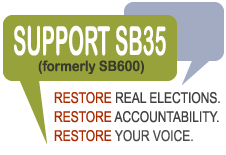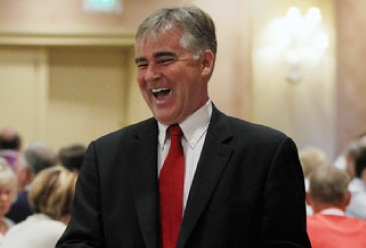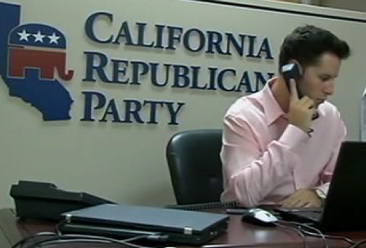Years served: Appointed March 2008 - Present
Committee assignments: State Government & Veterans Affairs (Minority Spokesperson); Agriculture and Conservation; Appropriations I; Commerce; Criminal Law; Committee of the Whole; Joint Comm. on Government Reform; Criminal Law Subcomm. on Firearms; Subcommittee on Animal Welfare; Subcommittee on Coal Mining; Subcomm. on Fertilizers & Chemicals.
EDUCATION
Bivins voted to exempt teachers, principals and school superintendents from FOIA disclosure.
At the urging of the teachers’ unions and just months after approving what was billed as a sweeping reform of the Illinois Freedom of Information Act, Bivins voted for SB315. The bill exempts from FOIA disclosure of performance evaluations for teachers, principals and school superintendents. Also supporting SB315 was the American Federation of State, County and Municipal Employees Council 31 which seeks the same exemption for all public employees who receive performance evaluations. (2010)
REFORM (or the lack thereof)
Bivins did not vote for establishing a commission to work towards reducing the size of government.
Bivins was in attendance when the vote was taken but did not cast a vote for or against, refusing to take a principled stand. HB268 establishes a commission of legislative members appointed by the legislative leaders and local government representatives appointed by the Governor to report to the General Assembly on consolidating local governments. (2011)
Bivins voted against reducing the size and cost of government.
Bivins voted against SB173 - a bill that would have reduced the size and cost of government through consolidation or elimination of unnecessary units of local government. Illinois now has almost 7,000 taxing districts – far exceeding the number of any other state. Republican lawmakers had an incredible opportunity to strike a blow for limited government, but instead they chose big government over reform. (2011)
SB35 / SB600
Bivins opposes SB35 (formerly SB600) - a common sense reform that would once again allow ALL Republicans to directly elect the senior leadership of their own Illinois Republican Party. Bivins voted against SB600 on April 2, 2009 on the floor of the Senate. Fortunately the reform bill still passed overwhelmingly by a vote of 44 to 13. UPDATE: On April 8, 2011, Bivins had another opportunity to do the right thing, but chose not to cast a vote for or against the same bill (now known as SB35). Despite Bivins’ lack of support, SB35 passed unanimously in the Senate. (2011)
Bivins voted to exempt teachers, principals and school superintendents from FOIA disclosure.
At the urging of the teachers’ unions and just months after approving what was billed as a sweeping reform of the Illinois Freedom of Information Act, Bivins voted for SB315. The bill exempts from FOIA disclosure of performance evaluations for teachers, principals and school superintendents. Also supporting SB315 was the American Federation of State, County and Municipal Employees Council 31 which seeks the same exemption for all public employees who receive performance evaluations. (2010)
Bivins voted to water down ethics reform law.
Bivins voted to exempt transportation projects from the new ethics law (SB761). Despite the awesome demands of riding around on a High Horse every day since Rod Blagojevich’s arrest lecturing about the need to reform Illinois’ culture of corruption - state lawmakers still somehow found time to gut their own brand new “landmark” ethics reform law. This of course would be the same ethics reform law these same lawmakers hailed as “a big step forward.” (2009)
Bivins did nothing to help cleanse the Illinois Republican Party of the tainted National Committeeman Bob Kjellander.
Bob Kjellander could have been removed and replaced with an honest leader a lot earlier, if only Republican “leaders” like Bivins were serious about reform. Bivens never joined the rank-and-file and more serious officials who overwhelmingly called for Kjellander’s immediate ouster. It’s only because Bivins and a tiny handful of other old guard faces refuse to unify on reform that even this simplest of clean-ups remain difficult to accomplish.
END










